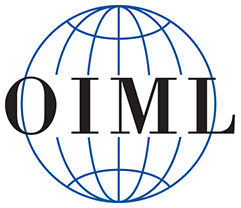Conformance testing — an element of conformity assessment, and also known as compliance testing, or type testing — is testing or other activities that determine whether a process, product, or service complies with the requirements of a specification, technical standard, contract, or regulation. Testing is often either logical testing or physical testing. The test procedures may involve other criteria from mathematical testing or chemical testing. Beyond simple conformance, other requirements for efficiency, interoperability, or compliance may apply. Conformance testing may be undertaken by the producer of the product or service being assessed, by a user, or by an accredited independent organization, which can sometimes be the author of the standard being used. When testing is accompanied by certification, the products or services may then be advertised as being certified in compliance with the referred technical standard. Manufacturers and suppliers of products and services rely on such certification including listing on the certification body's website, to assure quality to the end user and that competing suppliers are on the same level.
The ISO 9000 family is a set of international standards for quality management systems. It was developed in March 1987 by International Organization for Standardization. The goal of it is to help organizations ensure that they meet customer and other stakeholder needs within the statutory and regulatory requirements related to a product or service. The ISO refers to the set of standards as a "family", bringing together the standard for quality management systems and a set of "supporting standards", and their presentation as a family facilitates their integrated application within an organisation. ISO 9000 deals with the fundamentals and vocabulary of QMS, including the seven quality management principles that underlie the family of standards. ISO 9001 deals with the requirements that organizations wishing to meet the standard must fulfill. A companion document, ISO/TS 9002, provides guidelines for the application of ISO 9001. ISO 9004 gives guidance on achieving sustained organizational success.

The International Organization of Legal Metrology, is an intergovernmental organisation that was created in 1955 to promote the global harmonisation of the legal metrology procedures that underpin and facilitate international trade.

Product certification or product qualification is the process of certifying that a certain product has passed performance tests and quality assurance tests, and meets qualification criteria stipulated in contracts, regulations, or specifications.
ISO/IEC 17025General requirements for the competence of testing and calibration laboratories is the main standard used by testing and calibration laboratories. In most countries, ISO/IEC 17025 is the standard for which most labs must hold accreditation in order to be deemed technically competent. In many cases, suppliers and regulatory authorities will not accept test or calibration results from a lab that is not accredited. Originally known as ISO/IEC Guide 25, ISO/IEC 17025 was initially issued by ISO/IEC in 1999. There are many commonalities with the ISO 9000 standard, but ISO/IEC 17025 is more specific in requirements for competence and applies directly to those organizations that produce testing and calibration results and is based on more technical principles. Laboratories use ISO/IEC 17025 to implement a quality system aimed at improving their ability to consistently produce valid results. Material in the standard also forms the basis for accreditation from an accreditation body.
IEC 61508 is an international standard published by the International Electrotechnical Commission (IEC) consisting of methods on how to apply, design, deploy and maintain automatic protection systems called safety-related systems. It is titled Functional Safety of Electrical/Electronic/Programmable Electronic Safety-related Systems.
The Standards Council of Canada (SCC) (French: Conseil canadien des normes (CCN)) is a Canadian crown corporation with the mandate to promote voluntary standardization in Canada. The SCC is responsible for:
The South African National Accreditation System (SANAS) is the official laboratory accreditation body for South Africa. Founded in 1996, SANAS is headquartered in Pretoria, South Africa. SANAS accreditation certificates are a formal recognition by the Government of South Africa that an organisation is competent to perform specific tasks.
The International Accreditation Forum, Inc. (IAF) is the worldwide association of conformity assessment accreditation bodies and other bodies interested in conformity assessment in the fields of management systems, products, services, personnel, processes, validation and verification and other similar programs of conformity assessment. Its primary function is to develop a single worldwide program of conformity assessment which reduces risk for businesses and their customers by assuring them that accredited certificates and validation and verification statements may be relied upon.

The Standardization Administration of China is an external name of the State Administration for Market Regulation. Prior to 2018, it was an administrative office under the State Council to exercise administrative responsibilities by undertaking unified management, supervision and overall coordination of standardization work in China.

British Approvals Service for Cables is an independent accredited certification body headquartered in Milton Keynes, United Kingdom. Here, the organization's dedicated testing laboratory also operates which is believed to be the largest of its type in Europe. BASEC was established in 1971 and principally provides product certification services for all types of cable and wire, ancillary products and management systems within the cable industry. The organization maintains operations throughout the world including Africa, Middle East, America, Asia and Europe.

Joint Accreditation System of Australia and New Zealand (JASANZ) is an independent, third party accreditation body that provides internationally recognised accreditation services.
The United Kingdom Accreditation Service (UKAS) is the sole national accreditation body recognised by the British government to assess the competence of organisations that provide certification, testing, inspection and calibration services. It evaluates these conformity assessment bodies and then accredits them where they are found to meet relevant internationally specified standards.
IEC 62443 is a series of standards that address security for operational technology in automation and control systems. The series is divided into different sections and describes both technical and process-related aspects of automation and control systems security.
The National Standardization Agency of Indonesia is the International Organization for Standardization (ISO) member body for Indonesia. BSN is a non-ministerial Indonesian government agency with the main task of carrying out governmental tasks in the field of standardization and conformity assessment in Indonesia. The agency is also responsible to develop and maintain the Indonesian National Standard.
eCOGRA is a London-based testing agency and standards organisation in the realm of online gambling. The company was established in 2003 in the United Kingdom at the behest of the online gaming industry as the first industry self-regulation system. eCOGRA is a testing laboratory, inspection body, and certification body, specializing in the certification of online gaming software and the audit of Information Security Management Systems.

The International Certification Accreditation Council (ICAC) is an alliance of organizations dedicated to assuring competency, professional management, and service to the public by encouraging and setting standards for licensing, certification, and credentialing programs.
The testing, inspection and certification (TIC) sector consists of conformity assessment bodies who provide services ranging from auditing and inspection, to testing, verification, quality assurance and certification. The sector consists of both in-house and outsourced services.

The Department of Standards Malaysia is the National Standards Body and the National Accreditation Body, providing confidence to various stakeholders, through credible standardisation and accreditation services for global competitiveness. Governed by the Standard of Malaysia Act 1996, the Department of Standard Malaysia is an agency established on 28 August 1996 under the purview of Ministry of International Trade and Industry (MITI).

Standardisation Testing and Quality Certification (STQC) Directorate, established in 1980, is an authoritative body offering quality assurance services to IT and Electronics domains.







